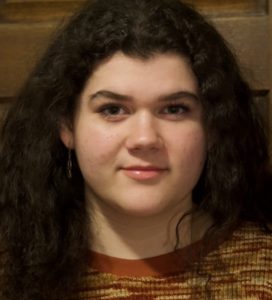Open Book: Shifting Worldviews
Longtimer Or Newcomer, We Are All Humans
By Anya Nitczynski
For the GPHN

As a fifth grader I organized a school-wide gun violence awareness demonstration (as well as a fifth grader can, at least; I certainly had a lot of help).
An avid reader of the New York Times and a child with parents who encouraged my opinionated nature, I was a growing Greta Thunberg, a mini Malala, a juvenile Joan of Arc. If you asked me for my zodiac sign I probably would’ve said Nelson Mandela. Naive and wide-eyed, I assumed I knew everything and my worldview was as vast as it would ever be.
As a rising freshman, a reality anvil was dropped on me in the form of an encampment for houseless people in the parking lot of Park Hill United Methodist Church. It’s where I spent almost every day of the summer of 2021.
My experiences there flipped my worldview on its head. I realized very quickly that in some ways my high-horse activist attitude fell under the same umbrella as the distrust that fueled an onslaught of threats against the Safe Outdoor Space.
I began to comprehend that the only way anyone could say such cruel things about the people who had rapidly become my friends was by not seeing them as people at all. I noticed how even supporters would ogle at residents like animals in a zoo when they toured the premises. I sheepishly admitted to myself that I had spent years avoiding the eyes of homeless individuals while swearing up and down that I viewed them as wholly as I would any other person.
It is shockingly easy to reduce what is unfamiliar to us to subhuman status without realizing it. You don’t need to actively hate someone to see them as less than someone at all. I’m being reminded of this vex of a habit of the human subconscious a lot lately, mainly regarding the thousands of new migrants in Denver.
My observation is that discussions about how the city should move forward on the influx of migrants often don’t acknowledge the basic personhood of the individuals they are discussing. Sacrificing basic empathy for the sake of productive dialogue is unnecessary and belittling – and it happens from all perspectives.
So how can we possibly avoid something that happens below our conscious radar? There’s no easy way out. My recommendation is to follow the example of my fifth grade self: be opinionated and informed and have passion for the things you know you believe in.
The only thing I did wrong in elementary school was assuming my perspective of the world was complete and the only one there is. Look outside of yourself and up to the sky so you can see reality anvils coming.
Anya Nitczynski is a junior at Denver School of the Arts. Her column appears monthly in these pages.
